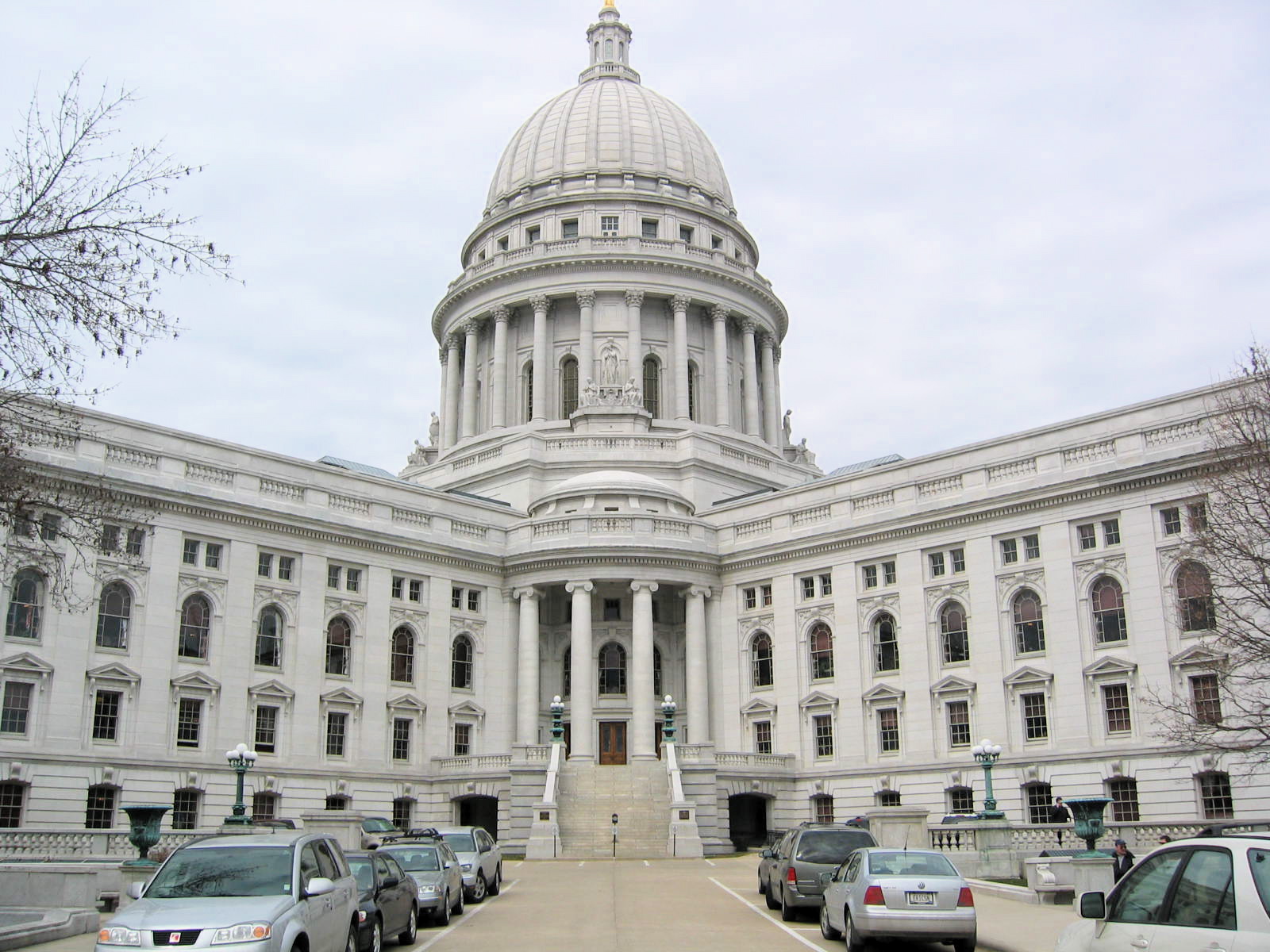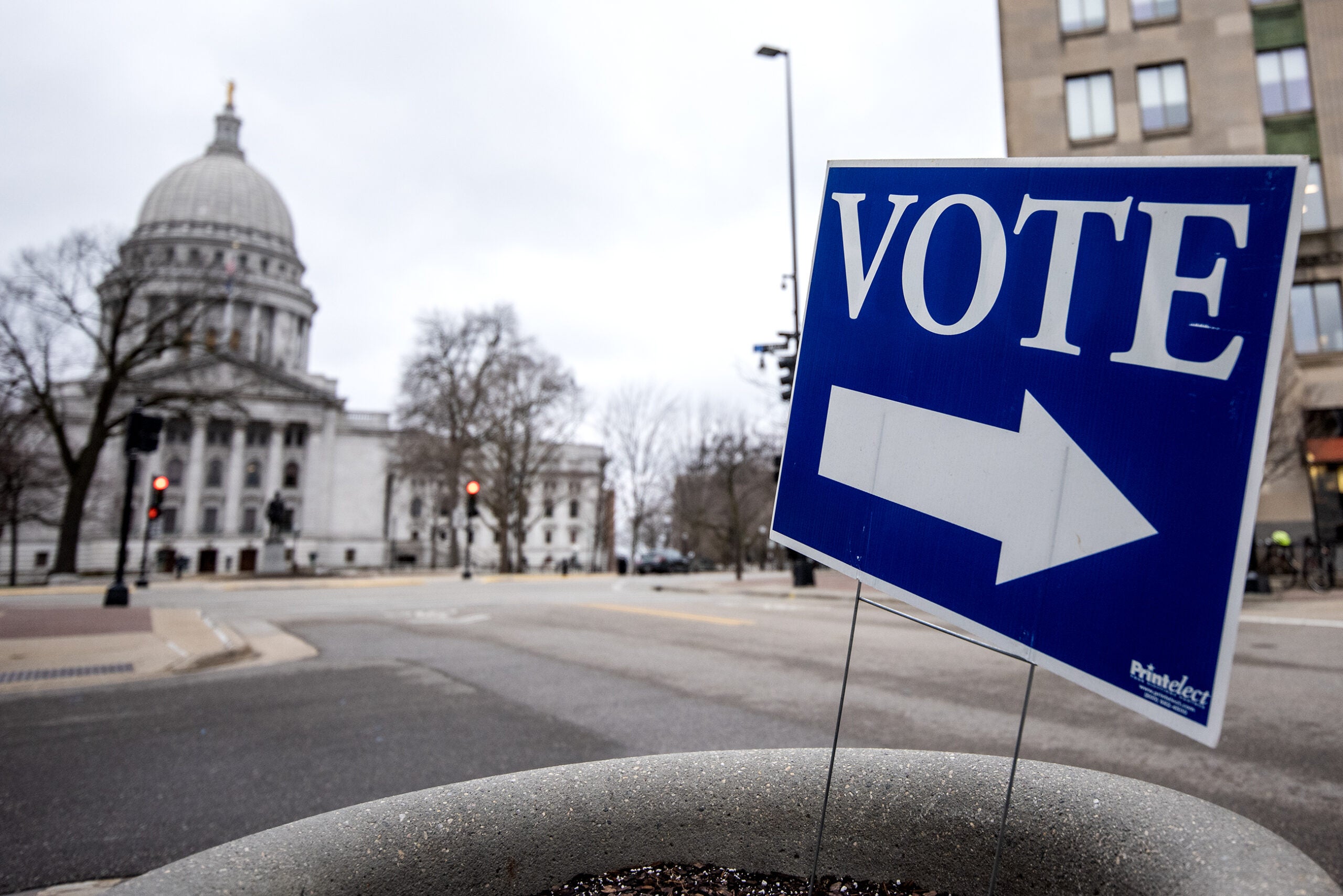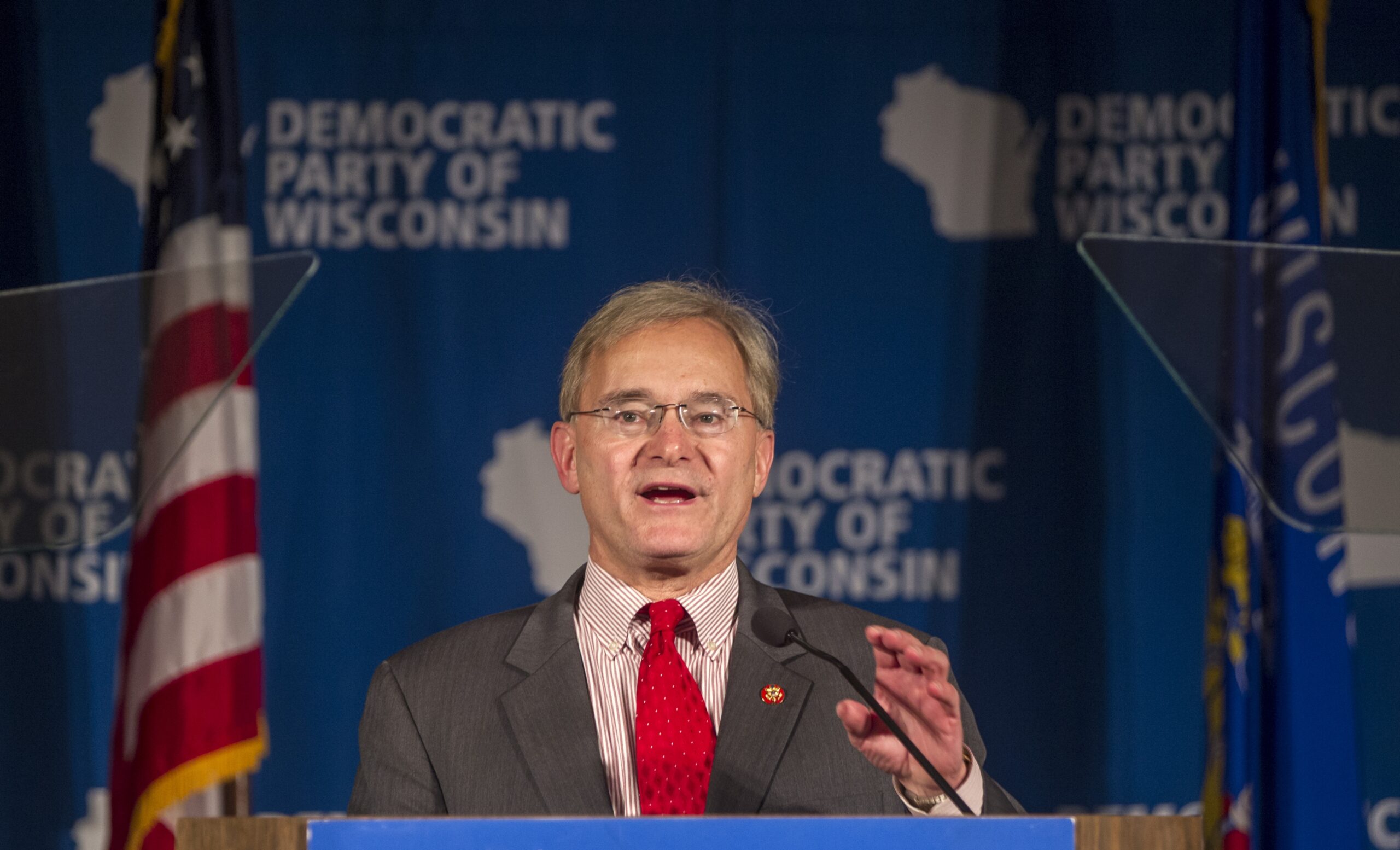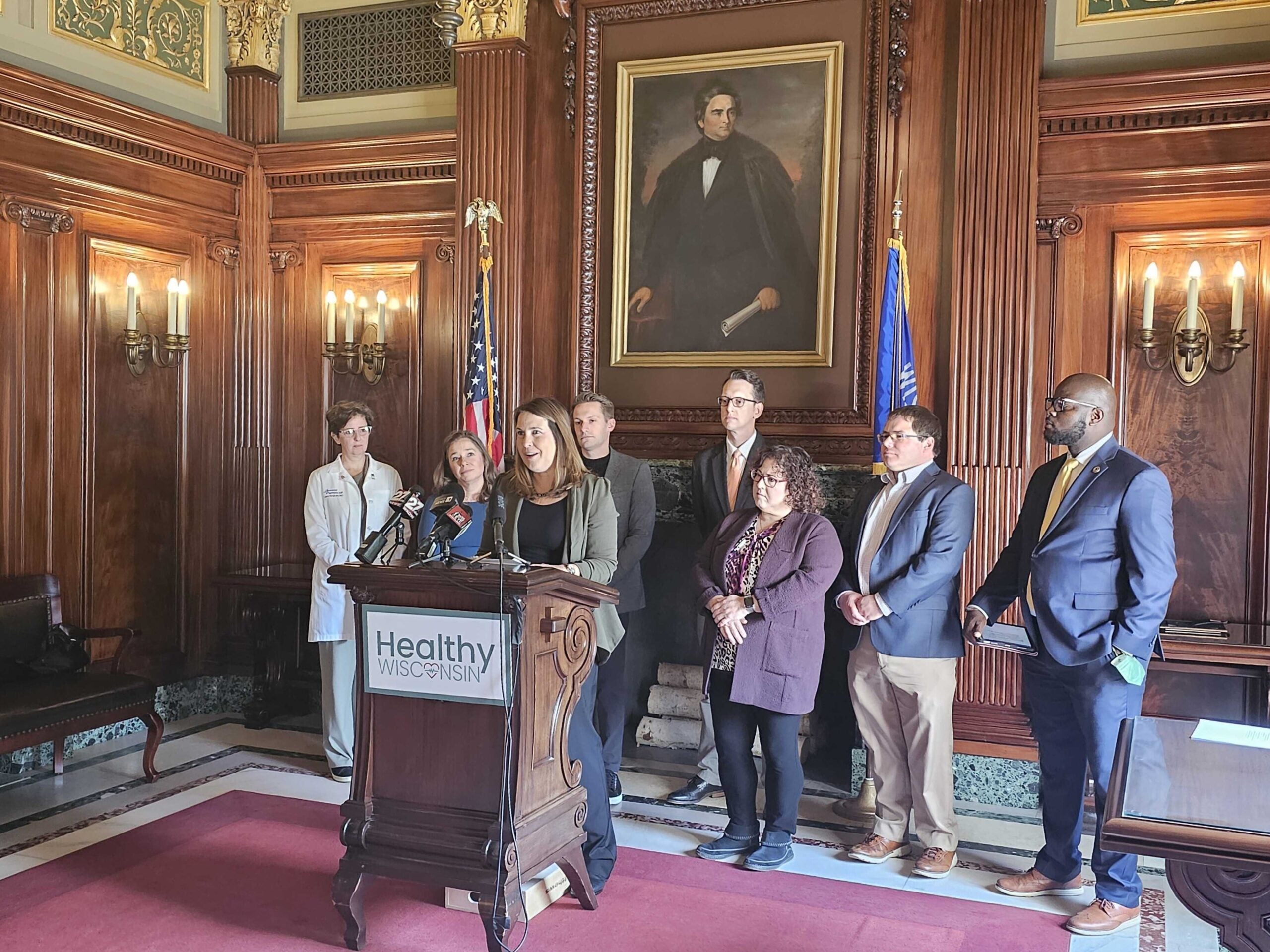Despite a flurry of activity at the end of this legislative session, leaders from both parties say their candidates will be judged on legislation that passed three years ago.
The state Senate passed dozens of bills on its last regularly scheduled session day, covering everything from chemotherapy to police investigations. Just minutes after the session was gaveled closed, however, Senate Majority Leader Scott Fitzgerald said he expected voters would judge Republican candidates on the results of Wisconsin’s collective bargaining law, Act 10.
“Basically, when you end up in a situation where the state’s in a much better situation than we were before fiscally, that was the goal, and certainly I think it’s becoming more and more difficult to come up with arguments that we are not in a better place than we were prior to Act 10,” Fitzgerald said.
Stay informed on the latest news
Sign up for WPR’s email newsletter.
Democratic leaders dispute that, pointing to reports that continue to show Wisconsin trailing the Midwest and the nation in job growth. Assembly Democratic Minority Leader Peter Barca says Republicans have spent too much time since they took power in 2011 on bills that help them, and not the average person.
“The more we can help people to understand what has been going on in the capitol over the course of the past three years, I think the more that people will recognize that the public interest is taking not just a back seat, but virtually no seat at the table of democracy,” Barca said. “That it’s all about the special interests: it’s all about feathering the nests of politicians and the majority.”
Because of the way the new political maps reconfigured districts, Democrats would likely need to flip three Senate seats to regain the majority in the state Senate. A change in power is less likely in the state Assembly, where Republicans have a much larger majority.
Wisconsin Public Radio, © Copyright 2024, Board of Regents of the University of Wisconsin System and Wisconsin Educational Communications Board.






